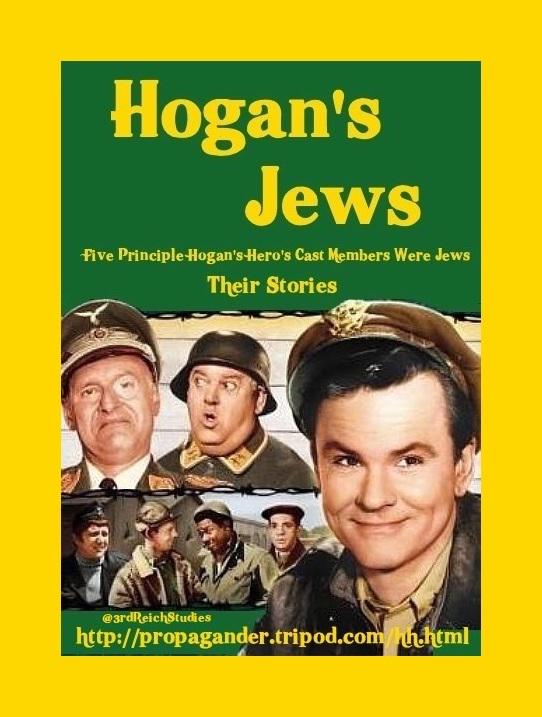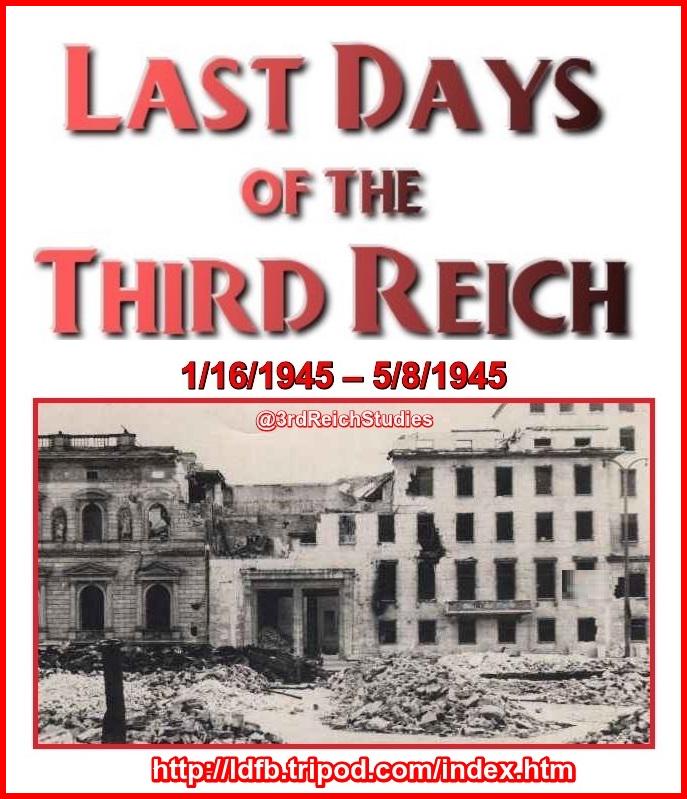How Widespread Was Guilty Knowledge of the Holocaust?
How Widespread Was Guilty Knowledge of the Holocaust?
First, some definitions:
Guilty Knowledge: The knowledge of facts or circumstances required for a person to have mens rea for a particular crime. Knowledge is usually actual knowledge, but when a person deliberately ignores facts that are obvious, he is sometimes considered to have ‘constructive’ knowledge.
Mens rea, Latin for a guilty mind. The state of mind that the prosecution must prove a defendant to have had at the time of committing a crime in order to secure a conviction. Mens rea varies from crime to crime; it is either defined in the statute creating the crime or established by precedent. Common examples of mens rea are intention to bring about a particular consequence, recklessness as to whether such consequences may come about, and (for a few crimes) negligence. Some crimes require knowledge of certain circumstances as part of the mens rea (e.g. the crime of receiving stolen goods requires the knowledge that they were stolen).
Willful Blindness (sometimes called willful ignorance or contrived ignorance) is a term used in law to describe a situation in which an individual seeks to avoid civil or criminal liability for a wrongful act by intentionally putting himself in a position where he will be unaware of facts which would render him liable.
Many of those Germans who had guilty knowledge of the Holocaust did not think to protest because they were in agreement with the aim of eliminating the Jews from the face of the earth. These individuals can be said to have mens rea as concerns the Holocaust. Obviously, those who were themselves perpetrators of the Holocaust--camp commandants, guards, camp physicians, etc.--not only had guilty knowledge, but guilty hands as well. This question does not concern those criminals, but instead focuses on the millions who knew, or should have know, of the Holocaust and did nothing to stop it.
It strikes me that if those who "should have known" (and how can such a thing actually be determined with exactitude?) were considered just as guilty as the perpetrators, this spreads the guilt so thinly that no punishment or retribution is even possible. There would be no Justice whatsoever under this criterion. If everyone is guilty, no one is responsible. This doesn't seem to be a tenable position.
On the question of those who "should have known," consider that many of the horror stories generated by Allied propaganda in WW1 (babies impaled on German bayonets, etc.) were subsequently found to be spurious, and that people in WW2 were often very suspicious of atrocity reports for this very reason. The Germans themselves were aware of this, as proved by the following document excerpt (and also others):
From a letter addressed to the Reich Minister for the Occupied Eastern Territories:
The fact that Jews receive special treatment requires no further discussion. However, it appears hardly believable that this was done in the way described in the report of the General Commissioner of 1 June 1943. What is Katyn against that? Imagine only that these occurrences might become known to the other side and be exploited by them! Most likely such propaganda would have no effect, only because people who hear and read about it simply would not be ready to believe it.
I submit that among those we in retrospect could possibly accuse of having indulged in Willful Blindness, were some who just couldn't bring themselves to believe that such things were actually happening in such a premeditated and systematic manner. When propagandists 'Cry Wolf,' they tend to make skeptics of those who would be better served by accurate reporting. These sorts of things are hardly ever black-and-white, and caution should always be the watchword when one engages in sweeping accusations of guilty knowledge without a specific documentary foundation.
There is a class of people who had guilty knowledge of the Holocaust, but cannot be considered to be guilty of complicity for the crime. An individual could only be considered guilty of complicity if both of these criterion are met:
1. Knowledge (of course) of a crime in progress or contemplated, and
2. Some ability to do something about it; either to be able to stop it, or sound the alarm.
For instance, the Jews that serviced the showers, or ran the corpses through the crematorium, obviously had intimate knowledge of the Holocaust, down to the minutest detail. But they had absolutely no ability to stop the process, or to get the word out to those who had such an ability. In my view, they are thus not culpable for any crime, being victims themselves.
A small group of Nazis, military personnel, and German citizens, did learn of the Holocaust and tried to do the right thing. The more naive among them protested to their superior officers or higher-ups in the hierarchy, and were usually informed to cease and desist as the reported incidents were approved policy. Those who insisted and took their complaints to even higher-ranked officials were successfully silenced through various means. But at least they tried. Some of these brave souls risked their lives to warn the West of the ongoing Holocaust, or endeavored to join or help the Resistance in some fashion. These few obviously are not guilty as they tried their best to do the right thing, often at the risk of their lives.
When word of the Holocaust reached the West from a variety of sources, the first hurdle to be overcome was the disbelief of those who gathered this intelligence. One can hardly fault someone for a reasonable skepticism. After all, none of the first reports reaching the Allies in the early stages were backed by any documented proof that could have been publicly released. Later, many isolated eye-witness accounts would emerge, but rarely were any of these atrocity stories accompanied by proof of any kind. However, beyond a certain point the preponderance of evidence became overwhelming and any good analyst would have to conclude that the reports had some basis in fact. At some point, honest skepticism becomes Willful Blindness, and some degree of guilt occurs.
Crime Without a Name:
August 24, 1941: Only two months after Germany's surprise attack of Soviet Russia, British Prime Minister Winston Churchill delivered a live broadcast from London:
The aggressor ... retaliates by the most frightful cruelties. As his Armies advance, whole districts are being exterminated. Scores of thousands--literally scores of thousands--of executions in cold blood are being perpetrated by the German Police-troops upon the Russian patriots who defend their native soil. Since the Mongol invasions of Europe in the Sixteenth Century, there has never been methodical, merciless butchery on such a scale, or approaching such a scale. And this is but the beginning. Famine and pestilence have yet to follow in the bloody ruts of Hitler's tanks. We are in the presence of a crime without a name.
Note: The term Genocide had not yet been coined.
Churchill's initial source for these crimes was one that he could not reveal to the public, making the immediate charge that it was nothing but propaganda difficult to counter. Churchill's information derived from the work of British cryptographers, who had broken the "enigma" code used by the Germans to communicate with the Eastern Front. Reports of the Einsatzgruppen, mobile killing squads that Churchill called "Police-troops," gave specific numbers of those killed in their operations. It was clear to British analysts that these killings were purposeful and systematic.
As the war progressed, and more and more information concerning the "crime without a name" was made known, Churchill and other Allied leaders released warnings to the Germans by way of the BBC, other clandestine radio stations, and various Resistance networks. While it was unlawful to listen to foreign radio broadcasts in Nazi Germany during the war, the breaking of this law among ordinary Germans was widespread. But of course, much of this was considered to be merely propaganda, and many "would not be ready to believe it." However, as more and more soldiers returning from the Eastern Front shared their stories of goings on behind the Front, the confluence of information from these sources necessitated that the process of Willful Blindness become a conscious endeavor.
These warnings can be said to have had some very limited success, such as prompting Himmler to release some categories of Jews to third parties in the Final Days, possibly with some improbable belief that such moves would assist his post-war survival.
But the actual actions taken by the Allies beyond information dispersal were minimal. While it is true that very little was possible, even less was attempted. The most grievous of these crimes of omission was the failure to bomb the crematorium at Auschwitz, or the train lines transporting the victims, to slow down the killing process. Excuses of military expediency were made for this failure, but one can only consider this episode--and other similar occurrences--reprehensible. To choose to fire-bomb a population center, instead of the infrastructure of the death camps, strikes one as a war crime in itself.
Those who made such decisions are thus guilty of not having acted appropriately in response to the knowledge available to them. The sad fact is that the Allies did not do everything possible to interfere in the Nazi genocide machine, and thus are themselves guilty as regards point two above.
As for the regular citizens of the countries at war, effective protest was really not a very viable option for Axis or Allied populations. In Germany you would find yourself in a concentration camp, and in the US or Britain you would be protesting against your government during wartime and treated much as you would be in Germany. Sedition laws were enforced with vigor in WW2. In wartime, citizens, for the most part, tend to march in lockstep behind their respective governments. They can only hope that their leaders are doing the right thing, and are at the mercy of the information fed to them by a press under strict censorship. An examination of the stories about the Holocaust taking place in Germany in the Allied press reveals that very little real information was available to the average citizen, and what there was was buried in a small column on page 55. In the West, there was very little guilty knowledge, in comparison to Germany. And again, what could be done?
The true guilt in the West for the Holocaust occurred long before the war began, when the Roosevelt administration refused to be more accommodating to the Jews trying to escape Hitler's clutches. While it was a good anti-Hitler strategy to keep the conflict between the Nazis and the Jews going, this--as I have previously mentioned (See: Was America Complicit in the Holocaust?)--was a cynical tactic hardly justified by the results. (One notes that the Arab states of the Middle East adopted this same strategy in regards to the Palestinian refugees. They could easily have absorbed their numbers, but they were of too much value as weapon against the Israelis for such a humanitarian solution to be realized.)
The average citizen of the US and Britain did not have an adequate understanding of the Holocaust during the war to be accused of guilty knowledge, but their respective governments did, and took very little action against it. This in itself is the strongest possible argument for a Jewish homeland, and went a large way to justifying the Zionists program. After all that occurred, even the dimmest Jew had to admit that the world could not be relied upon to see that justice for any people is done. A people must, by necessity, create their own Justice through strength, and only a people with a homeland are able to do so.
Conclusion: It was commonly known in Germany that the Jews were being exterminated with prejudice, Guilty Knowledge was widespread, and Willful Blindness was prevalent.
 Copyright © 2011-2013
Walther Johann von Löpp
All Rights Reserved
Copyright © 2011-2013
Walther Johann von Löpp
All Rights Reserved
 Twitter: @3rdReichStudies
FB: Horrific 20th Century History
Twitter: @3rdReichStudies
FB: Horrific 20th Century History
























Disclaimer: The Propagander!™ includes diverse and controversial materials--such as excerpts from the writings of racists and anti-Semites--so that its readers can learn the nature and extent of hate and anti-Semitic discourse. It is our sincere belief that only the informed citizen can prevail over the ignorance of Racialist "thought." Far from approving these writings, The Propagander!™ condemns racism in all of its forms and manifestations.
Fair Use Notice: The Propagander!™may contain copyrighted material the use of which has not always been specifically authorized by the copyright owner. We are making such material available in our efforts to advance understanding of historical, political, human rights, economic, democracy, scientific, environmental, and social justice issues, etc. We believe this constitutes a "fair use" of any such copyrighted material as provided for in section 107 of the US Copyright Law. In accordance with Title 17 U.S.C. Section 107, the material on this site is distributed without profit to those who have expressed a prior interest in receiving the included information for research and educational purposes. If you wish to use copyrighted material from this site for purposes of your own that go beyond 'fair use', you must obtain permission from the copyright owner.


 Copyright © 2011-2013
Walther Johann von Löpp
All Rights Reserved
Copyright © 2011-2013
Walther Johann von Löpp
All Rights Reserved
 Twitter: @3rdReichStudies
FB: Horrific 20th Century History
Twitter: @3rdReichStudies
FB: Horrific 20th Century History




Copyright © 2011-2013 Walther Johann von Löpp All Rights Reserved
Twitter: @3rdReichStudies FB: Horrific 20th Century History



